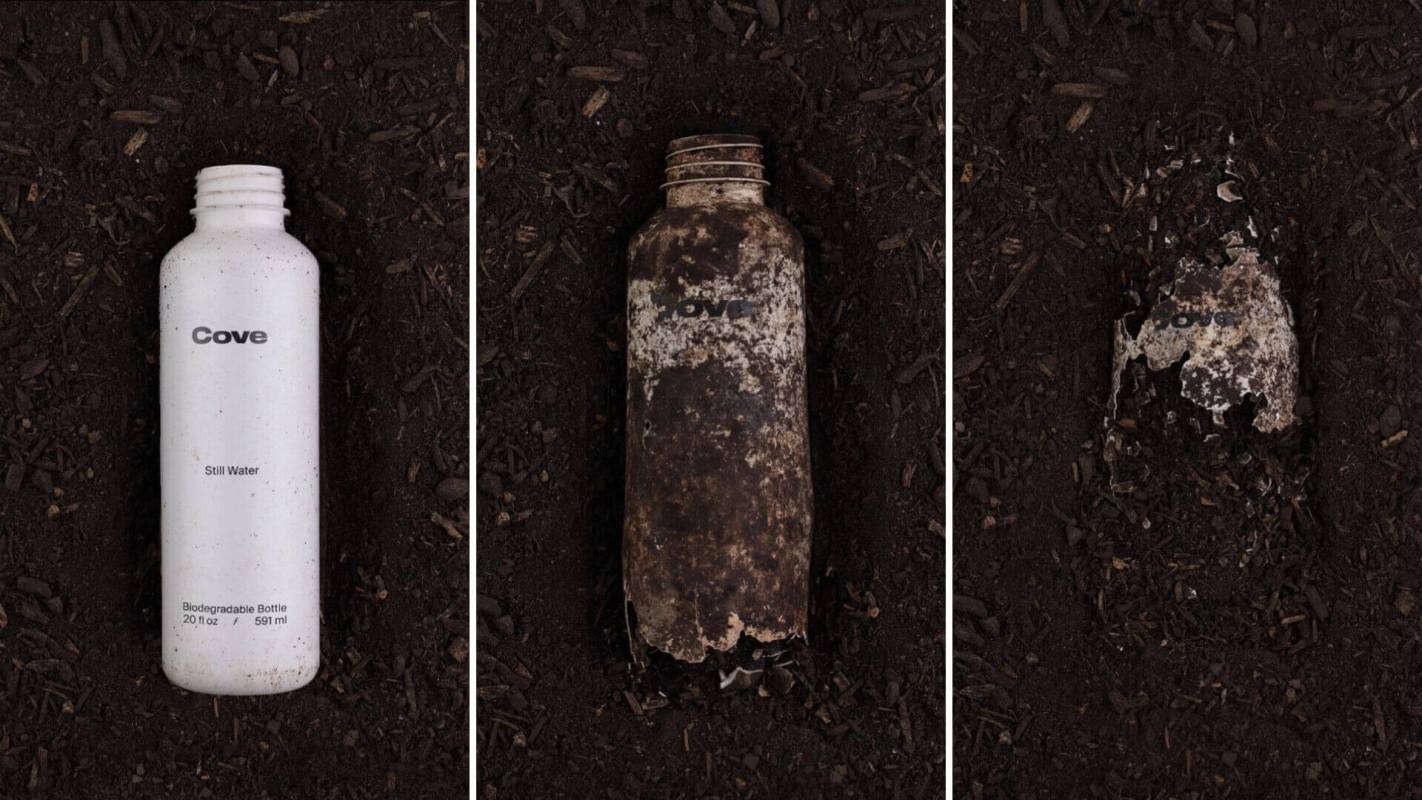The poster child of plastic waste is getting a makeover. That's right, the first biodegradable water bottle is here.
Created by California startup Cove, the bottle is the first fully biodegradable water bottle on the market, meaning that the packaging will — at best — break down in your compost bin. At worst, the bottle will still break down in any natural environment (even the ocean, where approximately (8 million pieces of plastic end up every day).
The unique bottles are made of a substance called PHA that looks and feels like plastic. But the material is actually made through fermentation.
To create the bottles, Cove feeds a variety of products such as vegetable oil, sugar, and food to microbes. Those microbes turn the food into a polymer in their cells, which can then be extracted and made into PHA.
During composting, the PHA is exposed to other microbes, which allows it to quickly break down.
This use of PHA could be a huge step in the right direction to combat plastic waste. Currently, about 40 million tons of plastic waste are thrown away each year in the U.S. alone, and it takes water bottles 450 years to break down in nature.
But PHA isn't the holy grail of biodegradability. Because of the countless variations of PHA, it's unclear exactly how long it takes to break down. On top of that, humidity, temperature, and weather all factor into how long an item takes to biodegrade. However, Cove estimates it will take each bottle between 1.5 and 4.5 years to decompose.
"No two environments are the same … Generally, the idea is just to get sort of an estimate that gives you an upper bound and lower bound for how long it will take," Ben Kogan, Cove's head of sustainability and policy, told Fast Company.
Cove officially launched its first bottles in stores at Erewhon, a California-based organic grocery store, at the beginning of December.
"Plastic water bottles have become the emblem of our modern pollution crisis," Alex Totterman, founder and CEO of Cove, said in a press release. "By bringing a truly biodegradable alternative to plastic to customers and the industry as a whole, we can begin to reduce plastic waste in our communities."
Want more? Follow The Cool Down on Instagram and join our Weekly Newsletter for cool stories and easy tips that save you money, time, and our planet.








